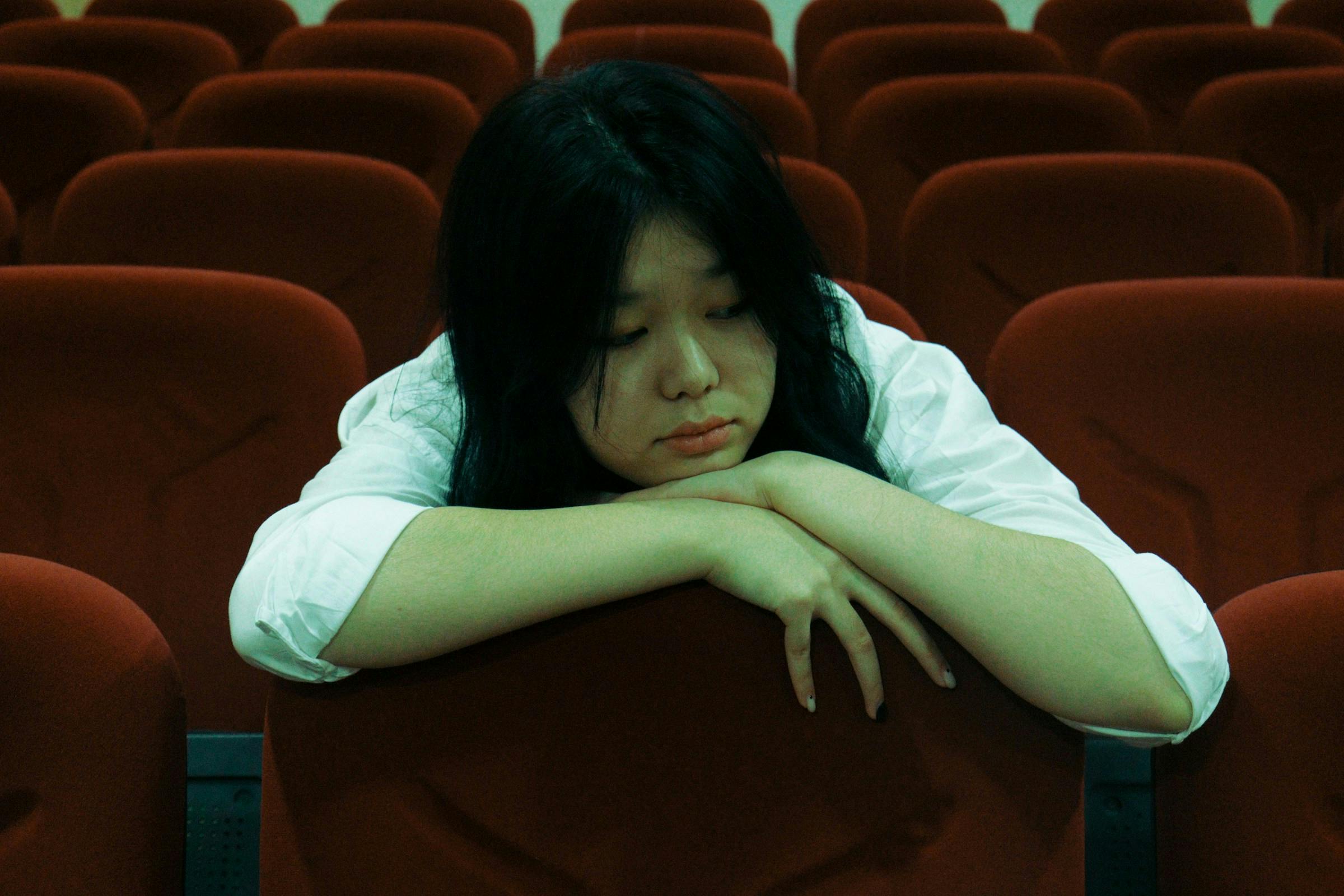How Free Testosterone Affects Female Energy, Fatigue, and Vitality: What Every Woman Should Know
By Dr. Priyali Singh, MD
Reviewed by Dr. Jossy Onwude, MD
Published May 7, 2025
9 min read

If you're a woman who constantly feels drained, unmotivated, or mentally foggy, you're not alone. Fatigue is one of the most common complaints among women, especially in their 30s, 40s, and beyond. But what if that exhaustion isn't just because you're busy or getting older? What if your hormones, specifically free testosterone, have something to do with it?
When we think about hormones and women, we usually think about estrogen and progesterone. Testosterone rarely makes the list. Yet, it's a vital hormone for both men and women. And when testosterone, particularly the "free" kind, is too low, it can significantly affect how much energy you have throughout the day. This article will break down everything you need to know about free testosterone, why it matters, and what you can do if yours is too low.
What Is Free Testosterone? (And Why It Matters for Women)
Testosterone is often labeled a "male hormone," but women produce it too, just in smaller amounts. It plays a vital role in a woman’s health, helping to regulate mood, energy levels, muscle strength, and even sex drive.
Most of the testosterone in your body is bound to proteins like sex hormone-binding globulin (SHBG) and albumin. When it's bound, it can't do much. The small amount that isn’t bound is called free testosterone, and it's the kind your body can actually use. Think of free testosterone as the active version of the hormone—it’s what gives you that get-up-and-go feeling.
Even though women have much less testosterone than men, this hormone is still essential for a number of reasons. It contributes to maintaining lean muscle mass, keeping bones strong, supporting brain function, and yes, keeping your energy levels steady.
Signs and Symptoms of Low Free Testosterone in Women
So, how do you know if your free testosterone might be low? One of the biggest signs is persistent fatigue—the kind that doesn’t go away with rest. You might wake up tired, feel like you’re dragging all day, and have little motivation to do the things you used to enjoy.
Some other common signs include:
- Feeling weaker, especially during workouts or daily tasks
- Trouble concentrating or a constant "brain fog"
- Reduced libido or interest in sex
- Mood swings, irritability, or even mild depression
- Slower recovery after exercise or physical activity
Of course, these symptoms can overlap with other conditions, like thyroid problems, iron deficiency, or even just high stress. But if you’ve ruled out other issues and you still feel off, it could be worth exploring your testosterone levels.
What Causes Low Free Testosterone in Women?

There are several reasons why your free testosterone might be lower than it should be. Some of these reasons are natural, while others are related to lifestyle or medical conditions.
One of the most common causes is aging. As women move through their 30s and 40s, testosterone production naturally starts to decline. This drop becomes more noticeable during perimenopause and menopause, when estrogen and progesterone levels are also changing.
Chronic stress is another big factor. When your body is constantly pumping out cortisol (the stress hormone), it can throw off the balance of your other hormones, including testosterone.
Diet also plays a role. Eating too little fat, skipping meals, or following an overly restrictive diet can reduce the building blocks your body needs to make hormones. Hormonal birth control, certain medications, and underlying conditions like PCOS (polycystic ovary syndrome) can also disrupt testosterone production.
Lastly, overtraining can be a surprising cause. If you’re doing a lot of cardio or intense workouts without enough recovery, your body may respond by lowering hormone production to conserve energy.
The Science: How Free Testosterone Boosts Energy
Now let’s talk about the "why." Why does low free testosterone make you feel so wiped out?
Testosterone helps support mitochondrial function. Mitochondria are like the power plants inside your cells—they produce the energy your body runs on. When testosterone levels are healthy, your mitochondria work more efficiently, meaning your cells produce more energy.
It also has a big impact on neurotransmitters like dopamine, which help regulate motivation, drive, and mood. Without enough free testosterone, your brain may not get the same signals that usually keep you mentally alert and focused.
There’s also growing research showing that testosterone helps with oxygen delivery and utilization during physical activity, which can make a big difference in your stamina and endurance. In short, when free testosterone is working the way it should, your body and brain feel more energized, more motivated, and more capable.
How To Test Free Testosterone Levels
If you suspect your testosterone might be low, the first step is getting tested. But not just any testosterone test will do.
Many doctors check total testosterone, which includes both bound and free testosterone. However, this number doesn’t always tell the whole story. You could have a normal total testosterone level, but still have low free testosterone because too much of it is bound to SHBG.
Ask your doctor for a full hormone panel that includes:
- Free testosterone
- Total testosterone
- SHBG (sex hormone-binding globulin)
- DHEA-S (another androgen that influences testosterone)
- Estradiol (main form of estrogen)
Note: Reference ranges may vary slightly between labs. Always consult your healthcare provider for interpretation based on your symptoms and health history.
Just because your levels fall within the reference range doesn’t mean they’re optimal for you. It’s important to work with a healthcare provider who understands hormone health in women, not just disease ranges.
Natural Ways To Support Healthy Free Testosterone in Women
If your free testosterone is low, there are several ways to support it naturally. Start with the basics: food, movement, rest, and stress management.
Make sure you’re eating enough healthy fats, such as avocados, nuts, seeds, and olive oil. Your body needs dietary fat to produce hormones. Protein is important too, as it helps build lean muscle and keeps your metabolism strong.
In terms of exercise, resistance training (like lifting weights or bodyweight exercises) is especially helpful. It not only boosts testosterone production but also helps you feel stronger and more energized. On the flip side, doing too much cardio or over-exercising without recovery can have the opposite effect.
Sleep is critical. Your hormones do a lot of their balancing act at night, especially during deep sleep. Aim for 7-9 hours of quality sleep each night.
Stress management is just as important. Chronic stress raises cortisol, which can lower testosterone over time. Practices like deep breathing, meditation, or simply taking time for yourself can help bring your body back into balance.
Certain micronutrients can also support healthy testosterone levels. Zinc, magnesium, vitamin D, and boron have all been linked to better hormone balance. You can get these from whole foods or supplements if needed.
Some women may also consider bioidentical hormone replacement therapy (BHRT), especially if lifestyle changes alone aren’t enough. This is something to explore with a qualified practitioner who specializes in female hormones.
When to See a Healthcare Professional

While lifestyle changes can make a big difference, sometimes you need more support. If your fatigue is constant, affecting your quality of life, or you have other symptoms like hair thinning, mood swings, or irregular periods, it’s a good idea to seek medical help.
A hormone-literate provider can help you run the right labs, interpret your results accurately, and come up with a personalized plan that may include dietary changes, supplements, or hormone therapy if needed.
Don't settle for feeling "just okay" if your body is telling you something is off. You deserve to feel energized, motivated, and alive.
Final Thoughts: Empowering Women to Reclaim Their Energy
Low energy doesn’t have to be your new normal. While there are many reasons women feel tired, low free testosterone is a lesser-known but powerful piece of the puzzle. Understanding this hormone’s role in your body—and how to support it—can give you the tools to start feeling like yourself again.
Remember, you don’t need to be a doctor or scientist to take charge of your health. Sometimes, it just starts with asking the right questions, getting the right tests, and listening to what your body is trying to say.
FAQs
1. Is free testosterone important for women?
Yes, free testosterone helps with energy, muscle strength, mood, and sexual health in women, even though it's typically seen as a "male hormone."
2. How can I tell if my testosterone is low?
Persistent fatigue, low libido, mood changes, and brain fog are common signs. A blood test measuring free testosterone can help confirm.
3. Can women take testosterone for fatigue?
Yes, some women benefit from testosterone therapy, especially during menopause. This should only be done under the care of a qualified healthcare provider.
4. What raises testosterone naturally in females?
Eating enough healthy fat and protein, strength training, managing stress, and getting quality sleep can all support healthy testosterone levels.
5. Can free testosterone levels affect female metabolism and weight?
Yes. Low free testosterone may slow metabolism, making it harder to build lean muscle and burn fat efficiently. This can contribute to weight gain, especially around the abdomen.
6. How do I test my free testosterone levels?
You can test your free testosterone levels through a blood test ordered by your doctor or through reputable at-home testing kits. The most accurate tests usually involve early morning blood draws when hormone levels are highest.
7. Are there natural ways to raise free testosterone in women?
Yes. Weight training, getting adequate sleep, reducing stress, eating a diet rich in healthy fats and zinc, and avoiding excessive alcohol or sugar can support natural testosterone production.
8. Is it safe for women to take testosterone therapy?
When properly prescribed and monitored, testosterone therapy can be safe and effective for women dealing with low levels. It should always be administered under the supervision of a knowledgeable healthcare provider.
9. Does birth control lower free testosterone levels in women?
Yes, many hormonal birth control methods—especially combined oral contraceptives—reduce the production of free testosterone by increasing sex hormone-binding globulin (SHBG), which binds and inactivates testosterone.
10. How long does it take to feel better after improving free testosterone levels?
Most women start to notice improved energy, mood, and libido within a few weeks to months of addressing low free testosterone levels, especially with treatment or lifestyle changes.
Share this article

NAD & NAD+ Supplements: Benefits, Risks, and What Science Says
Karyn O.
Jan 30, 20265 min read

Estrogen Patch Benefits for Menopause: Uses, Safety, and What to Know
Editorial Team
Jan 29, 20266 min read

How to Increase Estrogen Naturally: What Works, What Doesn’t, and When to Get Help
Dr. Priyali Singh, MD
Jan 27, 20266 min read

Best-in-class care is a click away
Find everything and everyone you need to reach your metabolic health goals, in one place. It all makes sense with Meto.
Join Meto